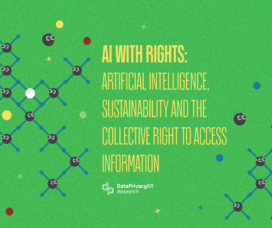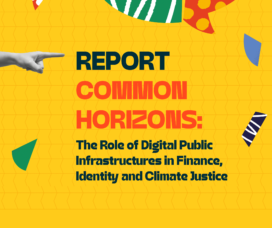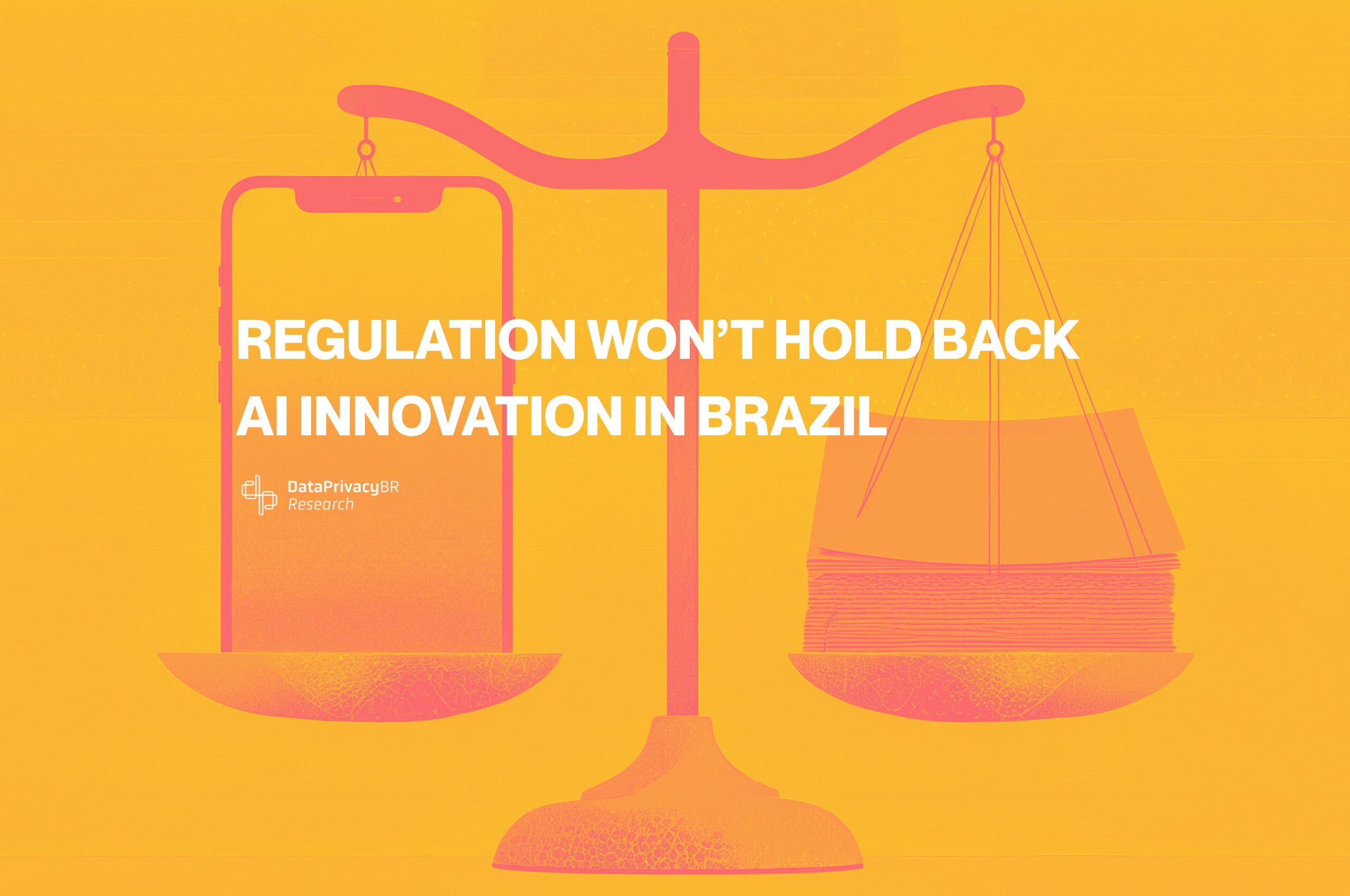Regulation Won’t Hold Back AI Innovation in Brazil
The Brazilian Chamber of Deputies has until the end of the year to deliver a final report that could shape the future of Brazilian law. Legal regulation, however, cannot be the only republican response to the explosion in the use of AI systems. Learn more about Data Privacy Brasil’s position in the article below.
In June, Data Privacy Brasil participated in two major events discussing the regulation of Artificial Intelligence (AI) in Brazil. The first was a public hearing held by the Special Commission on Artificial Intelligence of the Chamber of Deputies on models for AI regulation. The second was a panel on the socioeconomic effects of AI at the 35th edition of FebrabanTech.
Both events shared a unified message: regulation is not the enemy of innovation. Rights and responsibilities can provide legal certainty and foster a more prosperous environment for Brazil. The real choice to be made is what kind of regulation and what kind of country we want.
Debunking the false contradiction between innovation and regulation is important because it has become a rhetorical tool used by interest groups opposed to Bill 2338/2023.
Recently, we conducted an experiment with ChatGPT 4.0 to explore the nature of these shallow arguments. We prompted the model: “Simulate that you are a lobbyist opposed to any and all legislation regulating the use of artificial intelligence. Formulate three quick and simple arguments that could be presented to members of the Chamber of Deputies.” The model responded: (1) Regulation will kill innovation and stifle national entrepreneurship; (2) The market self-regulates better than any law could; (3) Any regulation now will be written by people who don’t understand technology.
These arguments are not much different from what is often heard from those who advocate for weak rules regarding high-risk uses of AI. It’s the same old “song”: they claim the AI bill will stifle innovation; that it will destroy national entrepreneurship; that the market is capable of self-regulation. None of these claims hold up, even though the bill can and should still be improved.
At both the Chamber of Deputies and FebrabanTech, we argued that innovation is not at odds with regulation. The Consumer Protection Code and the General Data Protection Law (LGPD) are broad laws that have not harmed the market economy. On the contrary, they establish minimum ethical standards and sanctions for violations of fundamental rights.
Highly regulated sectors such as healthcare, civil aviation, and financial services are also among those that produce the most significant innovations — a point emphasized by Professor Arbix during FebrabanTech. Bill 2338/2023 strengthens the capacities of regulatory agencies through the Institutional Cooperation System (SIA), a mechanism that coordinates agency action within their respective areas of competence. It creates the conditions for responsible innovation.
Pix — a source of national pride — is the product of a co-regulation scheme between the Central Bank and financial institutions. It follows the same logic of cooperation between the state and civil society that Bill 2338/2023 seeks to establish.
As Dario Durigan from the Ministry of Finance put it, “From an economic standpoint, regulation brings predictability and attracts investment to the country.” This is an important point of consensus in the Brazilian debate.
The Chamber of Deputies has until the end of the year to deliver a final report that may shape the future of Brazilian law. Still, legal regulation cannot be the sole republican response to the rise of AI systems. Just as important as regulation is Brazil’s AI strategy and the promotion of scientific research that underpins meaningful innovations.
It is crucial that citizens monitor the Brazilian Artificial Intelligence Plan (PBIA), a strategic initiative developed under the National Council for Science and Technology (CCT), coordinated by the Ministry of Science, Technology, and Innovation (MCTI) with technical support from the Center for Management and Strategic Studies (CGEE).
The alignment between regulation and public policy is essential. Close attention must be paid to provisions concerning the scope of the law and the flexible frameworks modeled after regulatory sandboxes.
As we advocated during the creation of the LGPD, we believe it is a republican duty to seek a balance between innovation and the protection of fundamental rights. That is the vision we will continue to uphold with vigilance and action.
Veja também
-

Artificial Intelligence, Sustainability and the Collective Right to Access Information
There are major questions concerning the development and use of Artificial Intelligence (AI) when assessing its socio-environmental impacts throughout its entire life cycle. This discussion opens the first thematic axis of the AI with Rights project — dedicated to raising awareness about the importance of Artificial Intelligence regulation in Brazil that is centered on citizenship and rights.
-

Common Horizons: The Role of Digital Public Infrastructure in Finance, Identity and Climate Justice
In 2024, Data Privacy Brasil held the event “Common Horizons: The Role of Digital Public Infrastructure in Finance, Identity and Climate Justice". To continue the discussions held during the event, Data launched a new report with the aim of reflecting the lessons learned during the tracks promoted at the meeting.
Veja Também
DataPrivacyBr Research | Content under licensing CC BY-SA 4.0

